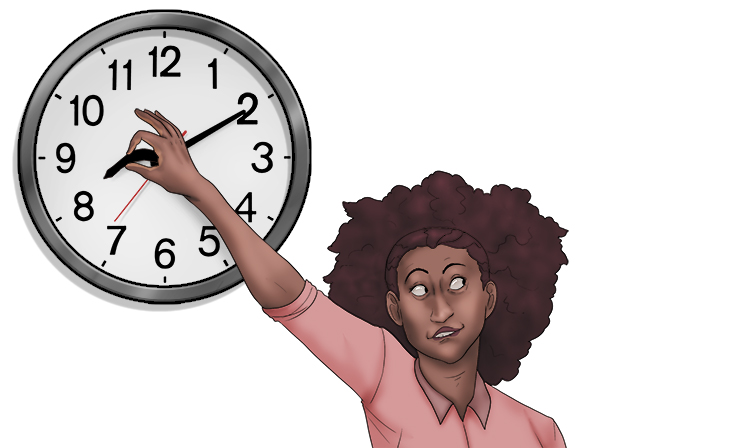Flexible Hours – A working practice in which employees are not required to work between two set times, but can choose when they work their required hours
(Pronounced flek-sih-buhl ow-uhs)
To remember what flexible hours means use the following mnemonic:
The flexible hour (flexible hours) hand on the clock could be bent forwards or backwards to make it seem as if you can start and finish at different times.

Flexible hours, also known as flexitime allows employees to set their own hours within certain limits. This can mean starting and ending work earlier or later than the standard 9am-5pm, working different days of the week or taking longer or shorter lunch breaks. Benefits of flexible hours include improved work-life balance for employees, reduced stress and increased productivity. For employers, flexible hours can attract and retain top talent, improve employee morale and reduce absenteeism.
There are different ways to implement flexible hours. Some employers allow employees to choose their own hours entirely, while others require employees to work certain core hours. For example, a team might be required to be at work between 10am and 2pm, but the individual members of the team have the freedom to decide which hours to work outside that time. One individual might normally start at 9am and finish at 5pm, while another works from 7am until 3pm each day.




